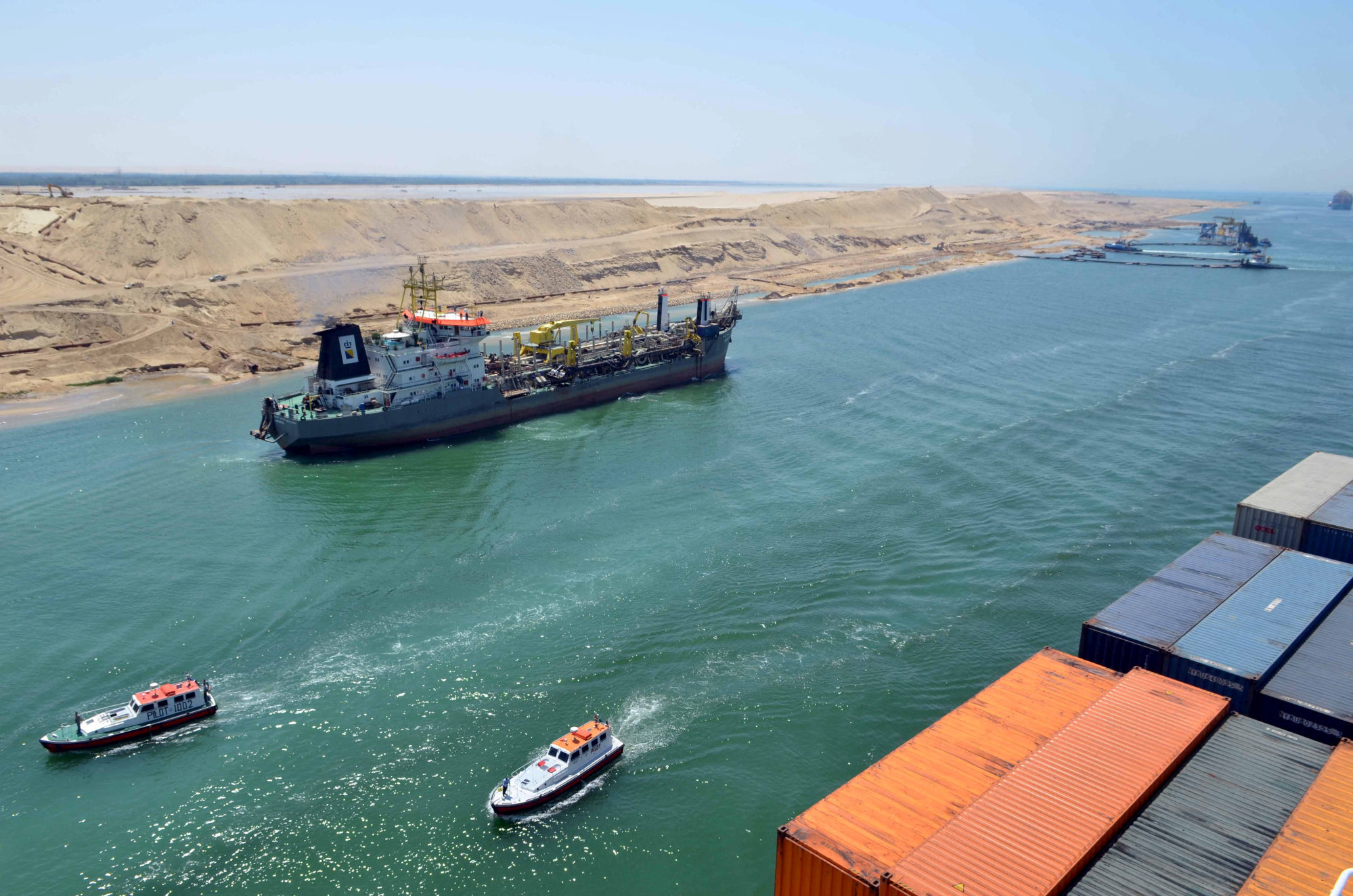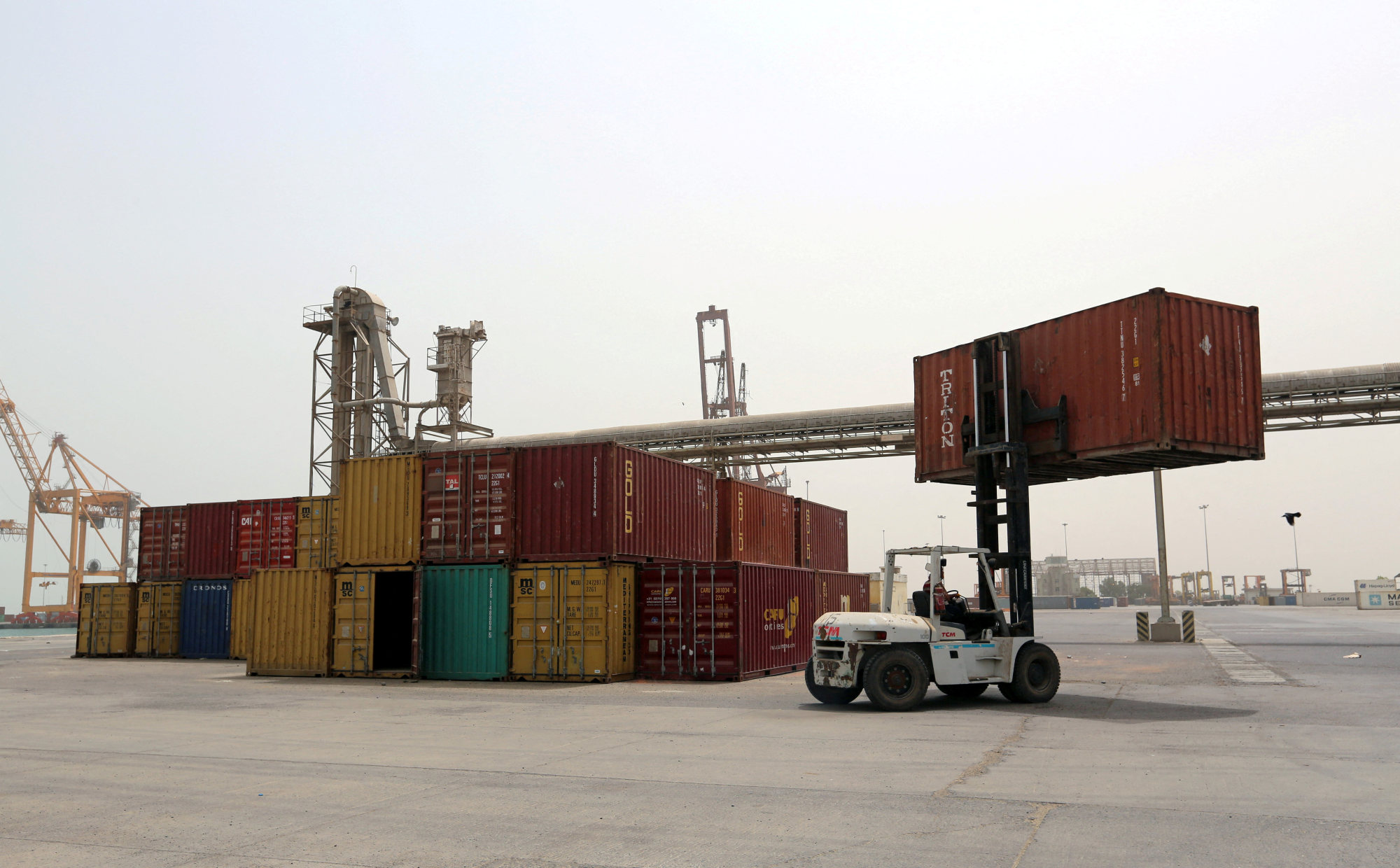“Import costs will be higher for perishable food items with limited shelf lives like cheese, butter and salmon as well as beverages like wine,” he said. Exports of electronics and automobile parts to Europe from Asia are also likely to stumble because of the shipping bottleneck, he said.
The upheaval in freight structures may also usher in supply-chain shifts to certain parts of Asia from others, he added.
‘Prices are soaring’: Red Sea attacks push up China-Europe container rates
‘Prices are soaring’: Red Sea attacks push up China-Europe container rates
The militant attacks have exacerbated traffic on the Suez Canal, where low water levels due to a drought in the region have reduced the number of vessels that can pass through on the route since around July-August.
Logistics and forwarding companies have painted a bleak picture for the impact on shipping, saying the situation is resembling a milder version of the supply chain crisis seen during the worst of the pandemic.
According to global trade solutions provider Flexport, 90 per cent of Suez Canal-bound container vessels are pausing or re-routing, which could remove about a quarter of the globe’s total capacity, inflate prices, and delay shipments.

Crude oil prices have risen to two-week highs following the militant attacks on ships to around US$79 per barrel on Wednesday, pinching a majority of import-dependent Asia.
“In terms of major oil infrastructure and vulnerable chokepoints, there’s been very little slack in the market at any time to be able to cope with major disruptions,” said Vandana Hari, founder of Singapore-based energy consultancy Vanda Insights.
“Least of all now, with an unprecedented 7 million barrels per day of Russian crude and refined product exports rewired in the space of less than a year,” she added.

Supply chain woes
Opinions are divided over how far the efforts are likely to succeed.
“The stakes are high for the region’s oil and gas producers and exporters. So one way or another, they will find a way to lean on Iran and the Houthis to calm down,” she said.
Others agreed that it is likely the situation will be defused, but added that it would depend on how swiftly the US is able to respond effectively.

“It has said it will protect shipping on the Red Sea, but I would like to see some conviction in what the US does,” said John Driscoll, director at Singapore-based JTD Energy Services. “For instance, will it send an aircraft carrier to protect ships?”
“It’s an election year in the US and [President Joe] Biden’s foreign policy has been under attack when there are all kinds of tensions brewing in the Middle East region,” he added.
International shippers have already started charging higher freight rates to and from Asia, industry executives said.
“Freight rates have gone up by about 10 per cent and insurance premiums will also go up,” said G Chandrasekhar, an independent regional commodities specialist based in Mumbai, adding that movement of goods between Asia and the west is getting delayed.
‘Fragile’ Saudi peace efforts hamper US response to Houthi attacks in Red Sea
‘Fragile’ Saudi peace efforts hamper US response to Houthi attacks in Red Sea
Shipping lines are likely to be extremely cautious about navigating the Red Sea for a long time, he said.
The Baltic Dry index, a key indicator of shipping costs, is nearing a two-year high in December.
However, a bigger worry is that the geopolitical tensions will rattle a nascent recovery in global supply chains, said Jamus Lim, associate professor of economics at ESSEC Business School Asia-Pacific and a specialist on China and Southeast Asia.
“The disruptions will disrupt the trend of diminishing global supply chain pressures, which had steadily fallen over the course of 2023. This relief has been key for helping reduce global inflationary pressures,” he said.

